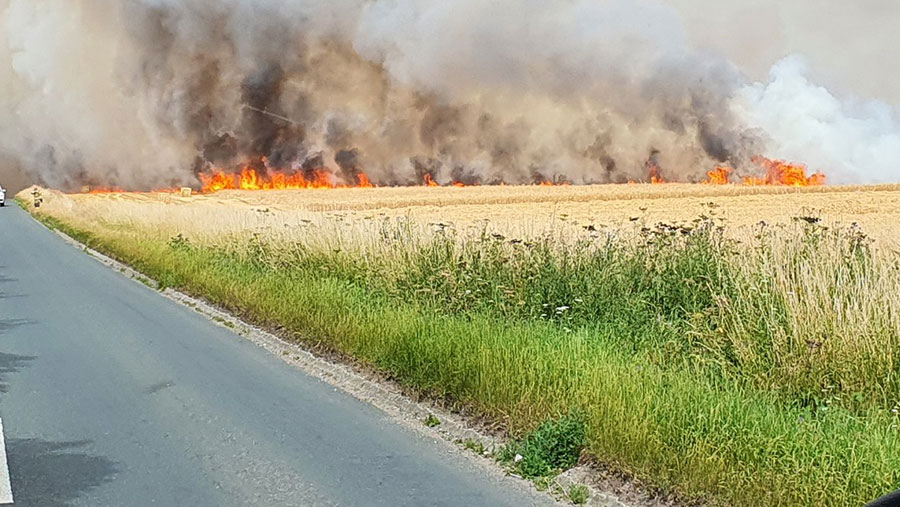Farm fire protection advice issued amid water scarcity warning
 © North Yorkshire Fire and Rescue Service
© North Yorkshire Fire and Rescue Service Fire and rescue services across the Thames Valley are urging farmers to take precautions against farm fires as the harvest season approaches.
Creating a new six-point plan for farmers to follow, the initiative, which is backed by the NFU and rural insurer NFU Mutual, comes as the cost of farm and agricultural machinery fires in Berkshire, Buckinghamshire and Oxfordshire totalled nearly £4m last year.
See also: Teenage arsonist handed £61 court bill for £1m barn fire
After last year’s hot, dry summer caused a spike in harvest fires, officials have already expressed concern over below-average rainfall seen throughout May this year, with parts of Scotland already issuing water scarcity alerts.
Alex Nelms, NFU county chairman for Berkshire, Buckinghamshire and Oxfordshire, said: “Our advice is to keep farm vehicles maintained at all times.
“This includes combine harvesters, which should be cleared out regularly during harvest. It’s also important to keep a serviced fire extinguisher to hand.
“If the worst happens and there is a fire on farm, having an emergency plan and staff trained on what to do is really important.
“It also helps to have information on how to access water supplies and have a bowser filled with water, tractor and plough ready to create a firebreak if needed.”
Harvest fire prevention advice
- Regular maintenance: Ensure that your equipment is clean and maintained before every harvest activity. Regular equipment blowdowns and lubrication schedules can help avoid fires within your equipment.
- Help us find you: Provide the fire and rescue service’s control centre with what3words from the entrance of your farm and wait for the first appliance. They will then ask you to guide them to the scene of the incident.
- Know where your water supplies are: Ensure that any available water supplies on your farm are accessible to fire and rescue crews. If you know where your nearest fire hydrant is, ensure that this is clear and accessible.
- Have contingency arrangements in place: Consider using cultivators to put in firebreaks where safe to do so. If you have water bowsers available to extinguish spot fires, ensure that they are near and full of water.
- Store safe: Where possible avoid storing bales near main roads to deter would-be trespassers and arsonists. Store pesticides and fertilisers securely and remember it is critical to let the emergency services know if these products are involved in a fire due to the specific risks they pose.
- Check conditions and consult the Fire Severity Index before planning harvesting activities: This will help you identify the best time of day to start your harvesting to avoid the most extreme weather zones. Also check wind direction and harvest into it. www.metoffice.gov.uk/public/weather/fire-severity-index
